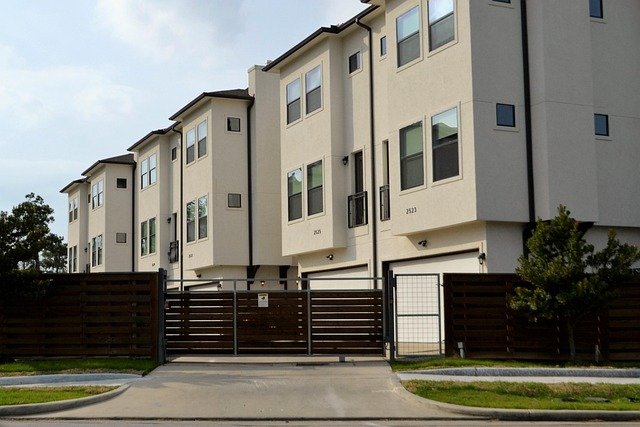Affordable Senior Housing: Resources and Options Guide
Finding affordable senior housing can feel overwhelming, but numerous resources and programs exist to help seniors secure quality living arrangements within their budget. From government assistance programs to non-profit organizations and innovative housing solutions, understanding your options is the first step toward making an informed decision. This comprehensive guide explores various pathways to affordable senior living, helping you navigate the complex landscape of housing resources available to older adults across the United States.

Navigating Affordable Senior Housing Options
The senior housing market offers various types of accommodations, each with different cost structures and eligibility requirements. Independent living communities provide maintenance-free apartments or condos for active seniors, while assisted living facilities offer additional support services for those needing help with daily activities. Memory care units specialize in caring for residents with dementia or Alzheimer’s, and skilled nursing facilities provide comprehensive medical care.
When evaluating options, consider your current and future needs, location preferences, and financial resources. Many facilities offer tiered pricing based on the level of care required, allowing residents to age in place while adjusting services as needed. Research waiting lists early, as popular affordable housing options often have extended waiting periods.
Top Online Resources for Senior Housing Search
Several reputable websites streamline the senior housing search process. A Place for Mom offers comprehensive listings and personalized assistance from housing advisors. Caring.com provides detailed facility profiles, reviews, and cost information across different types of senior living options. Senior Housing Net features an extensive database of communities with filtering options for budget, location, and care level.
The National Association of Area Agencies on Aging website helps locate local aging resources, while 211.org connects users with community services including housing assistance. Many state housing authorities maintain online databases of subsidized senior housing options, and the U.S. Department of Housing and Urban Development website provides information about federally assisted housing programs specifically designed for seniors.
Government Programs: Affordable Senior Housing Aid
The federal government operates several programs to help seniors access affordable housing. The Section 202 Supportive Housing for the Elderly program provides rental assistance and supportive services in specially designed housing developments. Public Housing programs administered by local housing authorities offer reduced-rent apartments based on income eligibility.
Housing Choice Vouchers (Section 8) allow eligible seniors to rent privately-owned housing while paying only 30% of their income toward rent. The USDA Rural Development program provides grants and loans for rural senior housing projects. Veterans can access specialized housing programs through the Department of Veterans Affairs, including HUD-VASH vouchers that combine rental assistance with supportive services.
State and local governments often supplement federal programs with additional assistance. Many states operate Low-Income Housing Tax Credit programs that create affordable rental units, and some municipalities offer property tax exemptions for seniors meeting income requirements.
Local Non-Profits and Community Senior Housing
Non-profit organizations play a crucial role in developing and operating affordable senior housing. Faith-based organizations, community development corporations, and charitable foundations often sponsor senior living communities with below-market rents. These organizations may offer sliding scale fees based on income and provide additional services like transportation, meal programs, and social activities.
Local Area Agencies on Aging serve as valuable resources for identifying non-profit housing options in your community. Many operate waiting lists for subsidized housing and provide application assistance. Community action agencies often coordinate housing services with other support programs, creating comprehensive assistance packages for low-income seniors.
Habitat for Humanity has expanded into senior housing, offering affordable homeownership opportunities through their aging-in-place programs. United Way chapters frequently fund or operate senior housing initiatives, connecting housing assistance with other essential services.
Creative Solutions for Affordable Senior Living
Alternative housing arrangements can provide cost-effective solutions for seniors seeking affordable options. Home sharing programs match seniors with compatible housemates, splitting housing costs while providing companionship and mutual support. Some programs facilitate intergenerational housing, where college students live with seniors in exchange for reduced rent and assistance with household tasks.
Accessory dwelling units (ADUs) or “granny flats” allow seniors to live independently on family property while maintaining privacy. Cooperative housing arrangements enable groups of seniors to collectively own and manage their living spaces, often resulting in lower costs than traditional rental properties.
Some communities are exploring innovative models like tiny house villages for seniors, co-housing developments that combine private units with shared common spaces, and naturally occurring retirement communities (NORCs) that provide aging-in-place services to existing neighborhoods with high concentrations of seniors.
| Housing Type | Average Monthly Cost | Key Features |
|---|---|---|
| Subsidized Senior Apartments | $400-$800 | Income-based rent, basic maintenance |
| Independent Living Communities | $1,500-$3,500 | Social activities, meal options, transportation |
| Assisted Living Facilities | $2,500-$4,500 | Personal care assistance, 24-hour staffing |
| Memory Care Units | $3,500-$6,000 | Specialized dementia care, secure environment |
| Shared Housing Programs | $300-$600 | Companionship, shared expenses, flexible arrangements |
Prices, rates, or cost estimates mentioned in this article are based on the latest available information but may change over time. Independent research is advised before making financial decisions.
The journey to finding affordable senior housing requires patience and thorough research, but numerous resources exist to help navigate this important decision. By exploring government programs, non-profit organizations, and creative housing solutions, seniors can find quality living arrangements that fit their budget and lifestyle needs. Start your search early, maintain flexibility in your requirements, and don’t hesitate to seek assistance from local aging organizations who can provide personalized guidance based on your specific circumstances and community resources.



